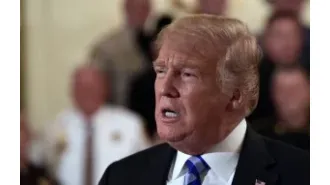Getting To Simpson Bowles
The President's Commission on Fiscal Reform, known as Simpson Bowles because it was led by Alan Simpson and Erskine Bowles, recommended that we find $6 trillion in spending cuts and new revenues to get the Federal Budget to a healthy place.
I stopped by the Wharton Economic Summit last week to hear Austan Goolsbee, formerly Obama's Chairman of the Council of Economic Advisors, give a keynote. In a wide ranging talk that touched on most of the key economic issues facing the US, Goolsbee pointed out that by hook and crook, we have already accomplished half of Simpson Bowles. We might not like the political nonsense around things like the "fiscal cliff" and the "sequester", but they have allowed the folks in DC to implement $3 trillion of spending cuts and new revenue.
But of course, if we have accomplished half of Simpson Bowles, that means we need to get to the second half. And that will be a lot harder because it requires our country to come to terms with entitlements. When asked why it is so hard for the politicians to tackle entitlements, Goolsbee pointed out that the general public believes two important things; we have a spending problem in Washington and we should not touch medicare, medicaid, and social security. Sadly, those entitlements are a big part of our spending problem and left alone, will be the entire spending problem in time.
I read with interest on Peggy Noonan's blog yesterday that the President had dinner last week with much of the Republican leadership and they had a frank and honest conversation about how to get to the second half of the $6 trillion. It's worth reading that post because it suggests that our political leaders actually do have the will to get to Simpson Bowles. It sounds like they all know it must be done.
Of course, there is a big difference between it must be done and it will be done.
When it comes to the economy here in the US, I believe a few things. First, our country might be a mess but it is in better shape than most of the rest of the world. Second, that it is entirely in our power to fix the problems we face. Third, we must take in as much as we spend over the long haul or we will go bankrupt. Fourth, if we take our fiscal medicine and do that responsibly over time we will not go back into a recession. Fifth, our economy is expanding with some vigor now and we have a moment, both economically and politically, that we must not miss.
So I am hoping our leaders find the will to get this done. It is essential, not just for our generation, but most importantly for our future generations.






